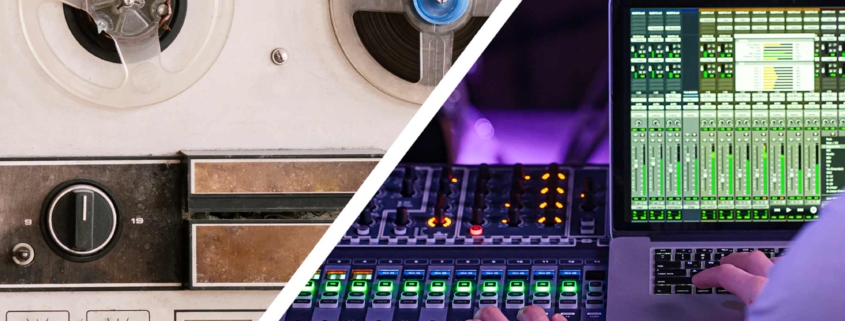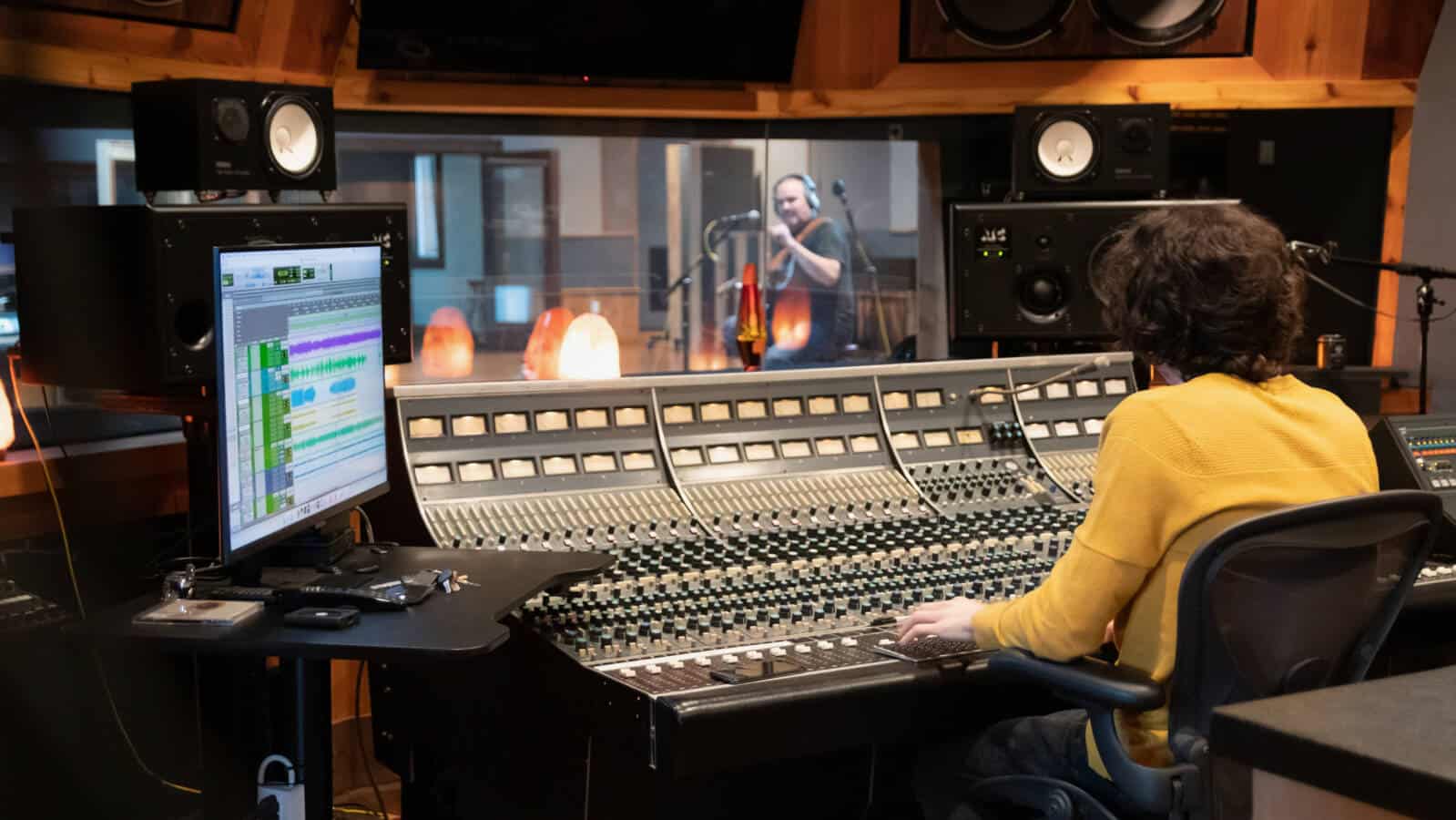Audio mastering is the final stage of the music production process. It involves enhancing the sound quality and preparing the music for distribution.
The history of audio mastering dates back to the early days of recorded music when engineers focused on optimizing the playback quality of vinyl records. Over the years, advancements in technology have transformed the mastering process, enabling engineers to achieve greater precision and clarity in the final sound.
With the rise of digital music formats and streaming services, mastering has become a crucial step in ensuring that music sounds its best across various platforms. Mastering engineers play a vital role in helping artists and producers achieve the desired sonic characteristics for their music.

Credit: www.travsonic.com
The Early Days
Audio mastering has a rich history that dates back to the early days of sound recording. Understanding the evolution of audio technology is crucial to appreciating the advancements made in this field.
invention Of Sound Recording
Thomas Edison invented the phonograph in 1877, a groundbreaking invention that allowed sound to be recorded and played back mechanically. This marked the beginning of sound recording technology.
evolution Of Audio Technology
- Year 1915: The introduction of electrical recording revolutionized the industry.
- Year 1948: The first commercial stereo recordings were released, providing a more immersive listening experience.
- Year 1980s: The shift to digital recording transformed the way audio was processed and mastered.

Credit: thechurchstudio.com
The Rise Of Studio Mastering
Introduction Of Mastering Process
Studio Mastering emerged in the mid-20th century to refine audio quality before distribution.
Impact On Music Production
Studio Mastering resulted in polished sound enhancing overall music quality.
Digital Revolution
With the rise of digital technology, the audio mastering process underwent a significant transformation, leading to a revolutionary shift in the music industry. This period saw the emergence of new techniques and tools that allowed for more precise and efficient audio mastering, ultimately reshaping the way music was produced and consumed.
Transition To Digital Mastering
The transition to digital mastering marked a pivotal moment in the history of audio production. This shift from analog to digital technology brought about unprecedented opportunities for enhancing sound quality and creative possibilities. It enabled mastering engineers to work with greater precision and control, resulting in a more polished and refined audio output.
Advancements In Audio Tools
During the digital revolution, advancements in audio tools played a pivotal role in shaping the landscape of audio mastering. The introduction of sophisticated software and hardware allowed for more intricate manipulations of sound, empowering engineers to achieve unparalleled clarity and fidelity in the final master. This period also witnessed the integration of innovative algorithms and processing techniques, paving the way for a new era of sonic excellence.
Modern Techniques
Audio mastering has evolved over the years with the emergence of modern techniques that have greatly enhanced the quality and impact of music. In this section, we will explore the role of mastering engineers and the future of audio mastering.
Role Of Mastering Engineers
Mastering engineers play a crucial role in the audio production process. Their expertise lies in fine-tuning and polishing the final mix of a recording to ensure it sounds its best across various playback systems. Through the use of advanced software and hardware tools, they are able to enhance the overall clarity, balance, and depth of the audio.
Mastering engineers employ a range of techniques to achieve exceptional sound quality. They carefully adjust the levels of each track, ensuring that instruments and vocals sit well together and nothing gets lost in the mix. They also apply compression and equalization to shape the tonal balance, making sure that the lows, mids, and highs are well-balanced and pleasing to the ear.
In addition, mastering engineers use stereo widening techniques to create a sense of space and dimension in the audio. This allows the music to translate well across a wide range of listening environments, from car stereos to club sound systems. Furthermore, they apply harmonic enhancement to add warmth and richness to the overall sound, making it more engaging and immersive.
The Future Of Audio Mastering
The future of audio mastering looks promising, thanks to advancements in technology and the continued demand for high-quality sound. With the rise of streaming platforms and online distribution, there is a greater need for audio that translates well across different devices and formats.
One of the key developments in audio mastering is the use of artificial intelligence (AI) algorithms to automate certain aspects of the process. AI-powered mastering tools can analyze the audio and make intelligent decisions to enhance its quality. While these tools cannot replace the expertise of human mastering engineers, they can assist in streamlining the workflow and providing alternative options for creative exploration.
Another emerging trend is the focus on immersive audio formats such as Dolby Atmos and binaural audio. These formats aim to create a more immersive and lifelike listening experience by incorporating three-dimensional sound elements. Mastering engineers are adapting to these formats by employing specialized techniques that allow for precise placement and movement of audio objects in a virtual sound space.
In conclusion, modern techniques in audio mastering have revolutionized the way music sounds, allowing for enhanced clarity, balance, and depth. The role of mastering engineers remains pivotal in ensuring a polished final product, while advancements in technology open up new possibilities for the future of audio mastering.

Credit: www.linkedin.com
Frequently Asked Questions Of Audio Mastering History
What Is Audio Mastering?
Audio mastering is the final step in the music production process. It is the process of preparing and optimizing a song for distribution, ensuring consistent playback across different systems and formats. Mastering enhances the overall sound quality, balances the levels, and adds a professional touch to the audio.
Why Is Audio Mastering Important?
Audio mastering is important because it polishes the final mix of a song, making it sound better and more professional. It ensures that the audio translates well on different devices and platforms, providing a consistent and enjoyable listening experience for the audience.
Mastering also helps to optimize the audio for different mediums like streaming, radio, and CDs.
What Are The Benefits Of Audio Mastering?
Audio mastering offers several benefits. It enhances the overall sound quality, making the music more engaging and immersive. It ensures that the levels are properly balanced and the audio translates well across various playback systems. Mastering also adds a polished and professional touch to the audio, making it more appealing to listeners.
How Is Audio Mastering Different From Mixing?
Audio mixing is the process of blending and balancing multiple individual tracks to create a cohesive and sonically pleasing mix. On the other hand, audio mastering focuses on the finalization and optimization of the mixed audio. It involves fine-tuning the audio to achieve a balanced and consistent sound across all tracks, adding depth, clarity, and maximizing the overall loudness.
Conclusion
In the ever-evolving landscape of music production, audio mastering continues to play a crucial role in delivering high-quality sound. As we traced its history, we discovered how mastering has shaped the way we experience music. Understanding its roots is key to appreciating how this art form has evolved and continues to influence the music industry today.